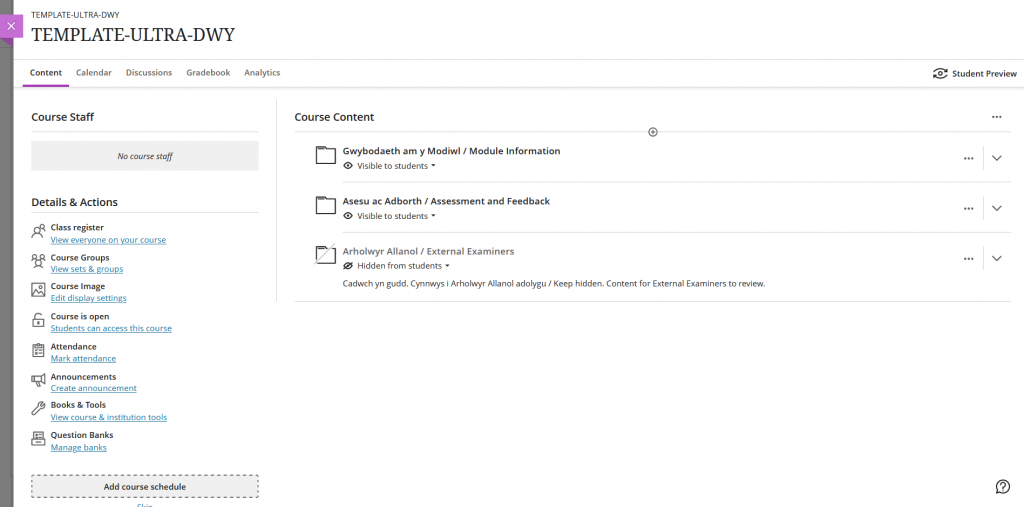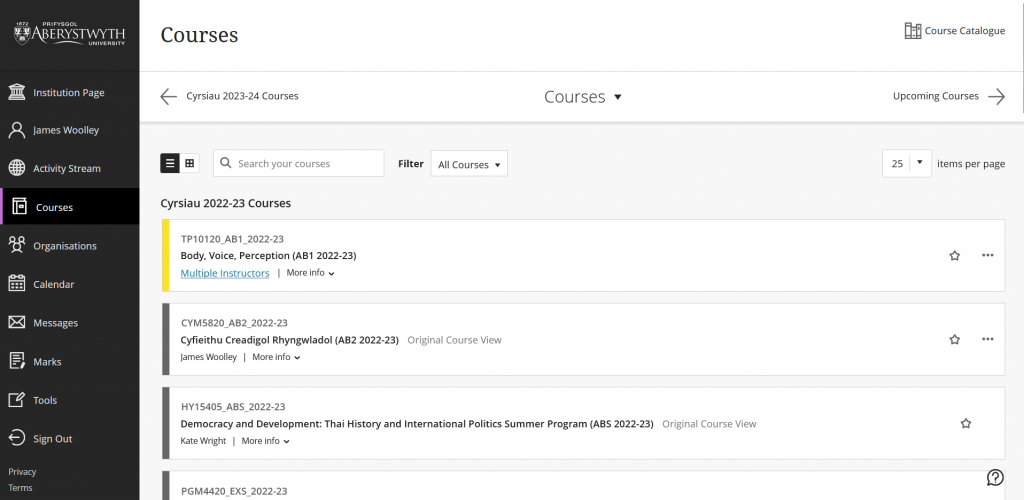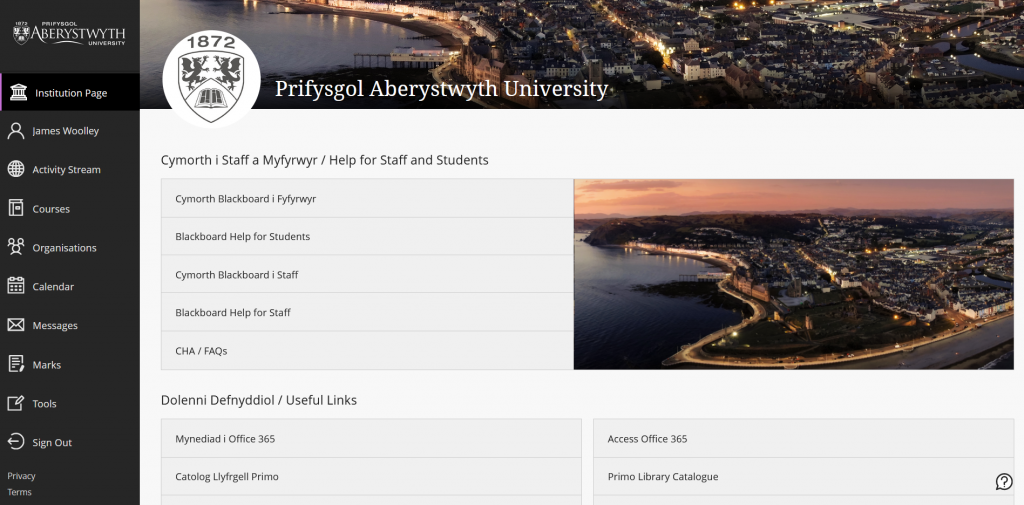
In this blogpost we’ll be outlining the training that we’ve been designing ready for the move to Blackboard Ultra.
We will be offering every department an E-learning Essentials: Introduction to Blackboard Ultra training session. We will be liaising with your departmental director of learning and teaching to arrange this, offering either an online or an in-person session.
In this session, we will outline what colleagues need to do to get their modules ready for September. The main outcome of this session is that colleagues will be able to achieve the Required Minimum Presence. The session includes some design tips, an overview of the analytics available in Blackboard Ultra, as well as how to create Turnitin submission points, links to your reading list, and Panopto links. We’ll introduce you to the updated interactive tools: Discussions and Journals. In addition to this, we’ll look at the new workflow for creating Blackboard Assignments and Blackboard Tests, and the Grade Book.
If you cannot make your departmental session, then we are also offering them centrally.
To complement this session, we are running some centrally organised E-learning Enhanced Sessions:
- E-learning Enhanced: Introduction to Discussions
- E-learning Enhanced: Introduction to Journals
- E-learning Enhanced: Introduction to Tests
- E-learning Enhanced: Designing Wiki Equivalences
- E-learning Enhanced: Designing Blog Equivalences
These sessions will be advertised on our course booking site.
If the session is taking place online then a Teams link will be emailed to you.
If you have any questions about our move to Blackboard Ultra, then do contact elearning@aber.ac.uk.






